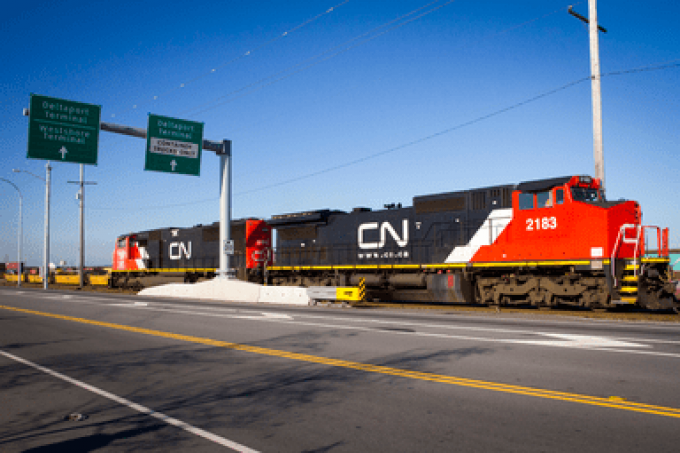Trump tariffs 2.0 – be careful what you wish for
Don’t hold your breath
ZIM: EXIT STAGE LEFTDSV: ZERO US TARIFFS IMPACT XPO: LOOKING GOODAMZN: PARTNERSHIP EXTENDEDWMT: ON A ROLLDSV: SLOW START AAPL: LEGALUPS: MULTI-MILLION PENALTY FOR UNFAIR EARNINGS DISCLOSUREWTC: PUNISHEDVW: UNDER PRESSUREKNIN: APAC LEADERSHIP WATCHZIM: TAKING PROFITPEP: MINOR HOLDINGS CONSOLIDATION
ZIM: EXIT STAGE LEFTDSV: ZERO US TARIFFS IMPACT XPO: LOOKING GOODAMZN: PARTNERSHIP EXTENDEDWMT: ON A ROLLDSV: SLOW START AAPL: LEGALUPS: MULTI-MILLION PENALTY FOR UNFAIR EARNINGS DISCLOSUREWTC: PUNISHEDVW: UNDER PRESSUREKNIN: APAC LEADERSHIP WATCHZIM: TAKING PROFITPEP: MINOR HOLDINGS CONSOLIDATION

The TCRC rail workers’ union in Canada has hit back at the “incredibly frustrating” decision taken by the minister of labour to prevent the impending strike on the grounds that disruption to services could “endanger the health or safety of the public”.
The Teamsters Canada Rail Conference called for industrial action against rail operators Canadian National Railway (CN) and Canadian Pacific Kansas City (CPKC) after five months of unsuccessful negotiations.
A strike was set for 22 May, and would have impacted Canada’s entire rail network for both passenger and freight, unless a deal was reached before then.
However, minister of labour Seamus O’Regan last week requested clarity from the Canadian Industrial Relations Board (CIRB) on whether certain rail services could be deemed as essential, and therefore must be maintained during a labour disruption.
Mr O’Regan cited concerns that a disruption of the services could “endanger the health or safety of the public”, as Canada relies heavily on rail to distribute bulk goods across the country, including fuels and agricultural products.
The CIRB set a deadline for initial submissions and rebuttal of 21 May, which means the strike on 22 May cannot take place.
“The membership’s right to withdraw services is frozen while the board investigates the matter fully and issues a determination,” explained the TCRC.
“This recent development is incredibly frustrating, and we believe it undermines the entire process.
“The TCRC will challenge any result that impacts our charter rights, whether it be this dispute or any decision that may hinder future collective bargaining.”
If a service is deemed “essential”, Canadian law states that during a strike or lockout, the trade union and employees in the bargaining unit must continue services “to the extent necessary to prevent an immediate and serious danger to the safety or health of the public”.
But the TCRC claims all three bargaining groups had signed agreements from CPKC and CN that there were no essential services required to be maintained in a strike or lockout. It said: “These agreements were filed with the CIRB and there has been no dispute of the same since the bargaining process began last autumn.”
While the union informed its members that it was “beginning the process to make its position known to the CIRB”, it acknowledged that it “must follow the law and respect the process as described”.
Despite the strike’s postponement, scheduled negotiations will go ahead as planned in Montreal this week, starting today with CN, and on Friday with CPKC.
CN said: “CN strongly believes that the current uncertainty around a labour disruption must be resolved, and as soon as possible, for employees, customers and Canadians who depend on rail to get them everyday essential goods.
“The company continues to seek a negotiated agreement with the TCRC.”
Catch up on last week’s supply-chain news in under 10 minutes with the latest episode of The News In Brief Podcast:
Comment on this article